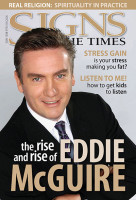Gastroesophageal reflux (or heartburn) is a common condition that causes a burning sensation in the chest and can lead to ulcers or even cancer of the oesophagus. It can affect men, women (especially in pregnancy) and children! Pain is experienced as the acidic contents of the stomach ”reflux” back up the oesophagus (foodpipe) because of increased abdominal pressure and a relaxed status of the muscle ring that normally keeps the entry to the stomach shut after meals.
Relief can be found by applying various lifestyle measures. However, some people will require medication.
10 Guidelines for reflux relief
1. Lose excess weight— Being overweight greatly increases your risk of reflux and new research suggests that even moderate weight gain among persons of normal weight can cause or worsen reflux!
2. Raise the head of your bed— Use the force of gravity to help prevent re-gurgitation of stomach contents, which is even more likely when you lie flat.
3. Avoid sleeping on you right side— This is helpful, if possible, as reflux is worse in this sleeping position.
4. Don't smoke— Cigarette smoking prolongs the removal of acid from the stomach and relaxes the lower oesophageal sphincter.
5. Avoid coffee— Choose a decaffeinated drink or water.
6. Avoid alcohol— Alcohol increases stomach acid secretion.
7. Don't drink with your meals— Enjoy fluids between meals to avoid further expanding your stomach at meals.
8. Eat smaller meals spread over the day— Six small meals is better than three large meals if you have reflux problems.
9. Stick to a low-fat diet— Added oils and fatty foods such as takeaway, chocolate and many processed snacks can aggravate reflux problems.
10. Avoid spicy or strongly acidic foods and drinks— These can irritate the oesophagus lining. Small amounts of some acidic foods, such as fresh tomato, may be tolerated.
Click here for a healthful, tasty recipe which won't aggravate reflux. .






